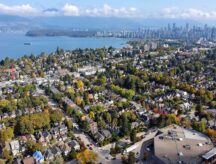What are your rights as a tenant? How to rent your first home in Canada
As a newcomer to Canada, it is likely that your first home will be a rented house or apartment. It is important to understand your rights as renter to ensure that renting your new home will provide you with a safe place where you can begin to adjust to your life in Canada.
Discover if You Are Eligible for Canadian Immigration
Landlord and tenant responsibilities can be different in different provinces and territories. In each province or territory, government departments or ministries oversee these laws.
Tenant responsibilities
As a tenant, you are generally responsible for:
- Paying your rent in full and on time
- Keeping your home clean and well maintained
- Contacting the landlord whenever anything needs to be serviced or repaired
- Allowing the landlord or manager to enter into your home to carry out repairs, or to show the home to other tenants if you are moving out. Your landlord must provide notice before entering into your apartment
- Vacate the property when the lease ends
In addition, tenants are generally not allowed to:
- Withhold rent in case of negligent repairs
- Renovate the property without the landlord’s permission
- Change the locks of the house without the landlord’s permission
- Sublet or assign the lease to someone else without the landlord’s permission
Landlord responsibilities
A landlord is a person who owns the house or building you are renting in. For larger buildings, the landlord may hire a property manager or superintendent to manage the building and collect rent.
In general, your landlord is responsible for:
- Collecting the rent
- Keeping the building/home safe and in a good state of repair
- Providing everything that comes with the apartment and that is included in your rent (i.e. refrigerator, stove, heating, etc.)
- Handling and paying for repairs when something in your home breaks
Landlords cannot refuse to provide you with utilities such as electricity or hot and cold water, but the cost of these services may or may not be included in your rent. In addition, tenants must often obtain and pay for cable TV and Internet services on their own. Landlords cannot prevent you in from using and enjoying your home in a reasonable way or take any of your property without a legal order allowing them to do so.
Signing a lease
A “lease” is a written rental agreement that spells out all the legal terms that you and the landlord have agreed to. A lease is a legal document, so it is important that you understand it entirely before signing it.
In general, most leases include:
- The names and contact information for you and your landlord
- The address of the house or apartment you are renting
- The monthly rent you have agreed to pay
- The date when rent is due and the amount that the landlord is allowed to increase in the rent in the future
- The term of the rental period (for example, one year or month-to-month)
- The conditions for ending or cancelling your lease
- The conditions for subletting the property
- A list of the repairs or upkeep that are your responsibility
- Other restrictions (for example, if you can smoke or have a pet)
- Details on when and how the landlord can enter into your home
- Procedures for making changes to the lease or resolving disagreements
- What landlords can ask you
Landlords can legally ask you:
- About your income to ensure you can afford your rent
- How many people will live at the property
- If you have any pets or if anyone on the property smokes
- Permission to run a credit check
- For references from your employer or previous landlords
In order to make a decision on whether or not to rent you a property, a landlord may ask for some personal information to allow them to complete a credit check. In Canada, all landlords must comply with the Personal Information Protection and Electronic Documents Act (PIPEDA). Under this Act, a landlord must have your consent to share your personal information with any third party, such as a credit reporting agency.
Landlords are not allowed to ask you:
- About your ethnic background, religion and sexual preferences
- For your Social Insurance Number (SIN)
- About your marital status
- Whether you plan to have more children
- If you have family visiting
Rent increases
Rent tends to remain the same during the term of a lease, however, when you renew your lease, your landlord may increase the rent. The frequency and amount that your landlord can increase your rent differs by province and territory. In most cases, your landlord has to provide you with 90 days’ notice of a rent increase. If you have not been given proper notice, you may be able to refuse to pay the rent increase until the landlord gives you the proper notice.
Usually, landlords can only increase your rent once a year and only by a certain maximum amount set by your provincial or territorial government. For example, in British Columbia, the maximum rent increase allowed is 2% and landlords cannot go above that limit if there is a fixed term lease. In Ontario, a landlord can increase the rent by a maximum of 2.5% without needing approval from the landlord and tenant board.
Tenant evictions and complaints
Tenants and landlords have rights when it comes to eviction. Tenants are protected against unreasonable eviction, and landlords are protected against difficult tenants.
A landlord can evict you if the conditions of the lease or rental agreement have been violated. There are different eviction procedures in each province or territory that a landlord must follow, however, you cannot be evicted and removed from the premises immediately.
Violations of the lease or rental agreement that would warrant eviction include:
- Not paying rent
- Excessive noise
- An unreasonably unsanitary living space
- More people on the premises than agreed to in the lease agreement
If you encounter issues when renting a home, you must take the proper steps and measures to inform your landlord and the appropriate rental authorities.
Discover if You Are Eligible for Canadian Immigration
- Do you need Canadian immigration assistance? Contact the Contact Cohen Immigration Law firm by completing our form
- Send us your feedback or your non-legal assistance questions by emailing us at media@canadavisa.com







